|
|
|
|
|
|
|
|
|
Today, no Arctic-science event is scheduled.
|
Media
Researchers Discover New Nitrogen Source in Arctic. Scientists have revealed that the partnership between an alga and bacteria is making the essential element nitrogen newly available in the Arctic Ocean. The microbial process of "nitrogen fixation" converts the element into a form that organisms can use, and was discovered recently in the frigid polar waters. This shift may be a result of climate change and could affect global chemical cycles, according to the study published in the Proceedings of the National Academy of Sciences. Nature World News
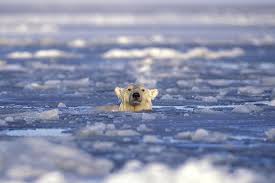 How do Polar Bears Stay Warm? How do Polar Bears Stay Warm? Most polar bears live within the Arctic Circle, so how do they keep warm in extremely low temperatures? Polar bears (Ursus maritimus) are well known for their white fur, which makes them almost invisible on the Arctic Sea ice. But in areas where it can drop to far below -30°C in winter, finding a way to stay warm is vital. Natural History Museum
The Arctic-Remote, But not Isolated. Like a thermostat for our planet, the Arctic helps to stabilize global climate and regulate temperatures worldwide. What happens in the Arctic doesn't stay in the Arctic, and changes in the Arctic's seemingly harsh, but inherently fragile environment have a profound global reach. Changes can destabilize the world's weather patterns and ocean circulation, affecting everything from food security and human, fish and wildlife health, to safe navigation, local to global economies, and national security. Weather Nation
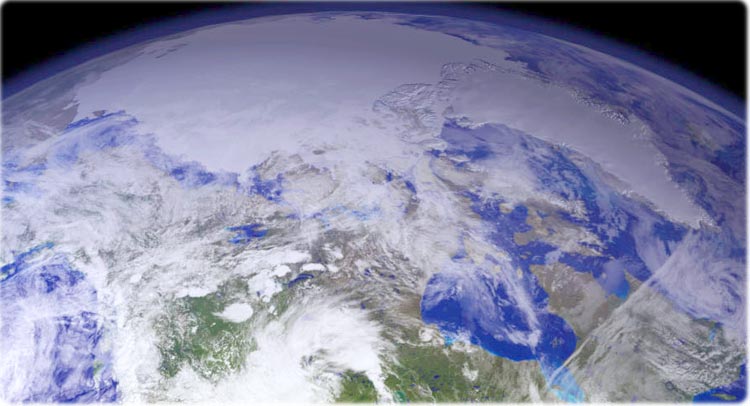 The Professor Multanovskiy Research Vessel to Begin Trans Arctic Expedition in mid-2019. The Professor Multanovskiy Research Vessel to Begin Trans Arctic Expedition in mid-2019. The Trans Arctic 2019 expedition's part, involving the Professor Multanovskiy research vessel, is scheduled to begin on July 10-15, 2019, the Far East's Hydrometeorology Studies Institute's Acting Director Alexander Dunayev told TASS on Monday. The expedition, which will continue to autumn, will have four stages. Scientists will study the Russian Arctic seas. Earlier, Prime Minister Dmitry Medvedev inked an order to allocate almost 870 million rubles ($13 million) for the studies. TASS
How the Internet Travels Across Oceans. The internet consists of tiny bits of code that move around the world, traveling along wires as thin as a strand of hair strung across the ocean floor. The data zips from New York to Sydney, from Hong Kong to London, in the time it takes you to read this word.Nearly 750,000 miles of cable already connect the continents to support our insatiable demand for communication and entertainment. Companies have typically pooled their resources to collaborate on undersea cable projects, like a freeway for them all to share. New York Times
As More Rain Falls, Greenland is Melting Faster. Melting on the Greenland ice sheet is already happening at some of the fastest rates in centuries, and it's only speeding up as the climate continues to warm. Now, a pair of new studies help explain why. Rainfall is becoming increasingly common over parts of Greenland, one paper found, and it's helping trigger sudden melting events that cause large amounts of ice to liquify and run off the edge of the ice sheet. Scientific American
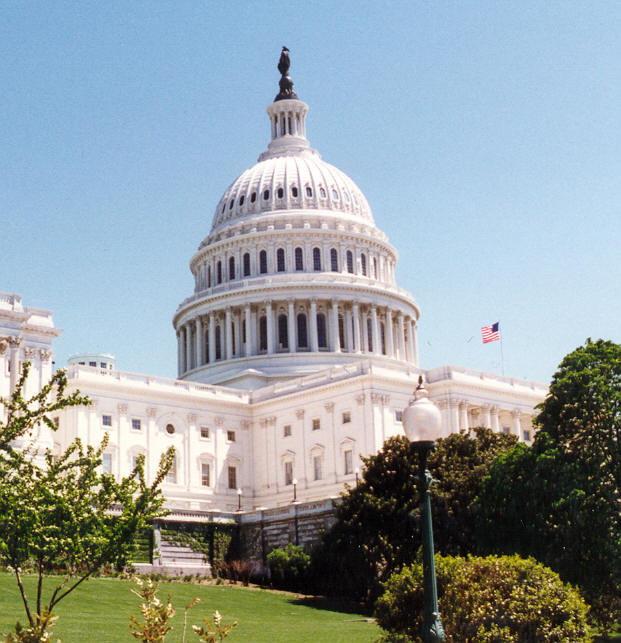 [Opinion] Lisa Murkowski and Joe Manchin: It's Time to Act on Climate Change-Responsibly. [Opinion] Lisa Murkowski and Joe Manchin: It's Time to Act on Climate Change-Responsibly. Lisa Murkowski, a Republican, represents Alaska in the U.S. Senate. Joe Manchin, a Democrat, represents West Virginia in the U.S. Senate. The two of us have more in common than might meet the eye. We come from different parties, but we are both avid outdoorsmen and represent states that take great pride in the resources we provide to the nation and to friends and allies around the world. Alaska and West Virginia know that resource development and environmental stewardship must move in tandem, which is why we are committed to putting forward bipartisan solutions to help address climate change. The Washington Post
 READ: Trump's 2020 Budget Proposal. READ: Trump's 2020 Budget Proposal. President Donald Trump delivered a 2020 budget to Congress on Monday that cuts spending across the board yet still isn't projected to balance for 15 years, even with ambitious economic growth forecasts. The President's blueprint also revisits the political fight over border wall funding that triggered this past winter's partial government shutdown. CNN Politics
|
|
Future Events
** New this week ** Virtual Alaska Weather Symposium, Wednesday, March 13, 2019 (11am AKDT): " Improving Communication of Coastal Flood Warnings to Alaska Communities" Coastal flooding and erosion from strong storms pose a significant threat to many Alaska communities. The National Weather Service (NWS) Alaska Region is collaborating with state, regional, local, and tribal organizations to improve impact-based decision support to communities before and during coastal storms. The NWS is also in the process of improving warning messages to rural Alaska in order to effectively communicate threat level, convey risk from storm surge, forecaster confidence, and potential impacts of incoming storms. The NWS is working to incorporate local terminology and place names, traditional knowledge of storm impacts, and storm observations into coastal flood warnings for communities.
 of the AAG includes over 8,500 geographers converging from the U.S., Canada, and nearly 60 other countries in a typical year including geographers, GIS specialists, environmental scientists, and other leaders for the latest in research and applications in geography, sustainability, and GIScience. of the AAG includes over 8,500 geographers converging from the U.S., Canada, and nearly 60 other countries in a typical year including geographers, GIS specialists, environmental scientists, and other leaders for the latest in research and applications in geography, sustainability, and GIScience.
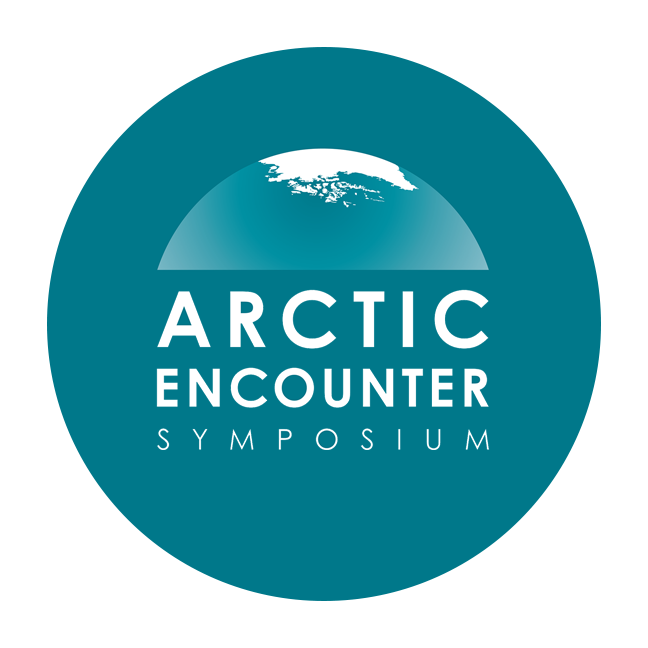 The 6th Annual Arctic Encounter Seattle, April 25-26, 2019 (Seattle, WA, USA). The sixth annual Arctic Encounter Seattle will engage the topic of innovation in the Arctic, specifically disruptive business and investment models, energy and power, climate research, national security, new economic and trade models, and popular media and awareness movements impacting the Far North. The 2018 Arctic Encounter Seattle drew over 300 participants from across Alaska, the U.S., and the world, including over 100 speakers, 32 sponsors, 11 media partners, fashion and photography installations, a live permafrost exhibition, 13 guest performers, fashion designers, and artist exhibitors to the downtown Seattle waterfront at Pier 66. The 2019 Arctic Encounter Seattle expects to increase engagement in new sectors and engage participants through policy debates, research presentations, performances, and more. The two-day Arctic Encounter Seattle will include an opening reception, two continental breakfasts, two keynote luncheons, a networking reception with Alaskan glacier ice cocktails, and a seated three course dinner including keynotes and live musical entertainment from the Far North. The Arctic Encounter is the largest annual Arctic policy and business conference convening in the United States, with partnerships and convening efforts worldwide. Registration is now open. Additional information is available here. The 6th Annual Arctic Encounter Seattle, April 25-26, 2019 (Seattle, WA, USA). The sixth annual Arctic Encounter Seattle will engage the topic of innovation in the Arctic, specifically disruptive business and investment models, energy and power, climate research, national security, new economic and trade models, and popular media and awareness movements impacting the Far North. The 2018 Arctic Encounter Seattle drew over 300 participants from across Alaska, the U.S., and the world, including over 100 speakers, 32 sponsors, 11 media partners, fashion and photography installations, a live permafrost exhibition, 13 guest performers, fashion designers, and artist exhibitors to the downtown Seattle waterfront at Pier 66. The 2019 Arctic Encounter Seattle expects to increase engagement in new sectors and engage participants through policy debates, research presentations, performances, and more. The two-day Arctic Encounter Seattle will include an opening reception, two continental breakfasts, two keynote luncheons, a networking reception with Alaskan glacier ice cocktails, and a seated three course dinner including keynotes and live musical entertainment from the Far North. The Arctic Encounter is the largest annual Arctic policy and business conference convening in the United States, with partnerships and convening efforts worldwide. Registration is now open. Additional information is available here.
North X North Festival, May 1-5, 2019 (Anchorage, Alaska USA).The third annual North x North Summit & Festival celebrates connection and culture across the North. The event features five days of conversations, workshops, exhibitions, performances, presentations, music, dance, installations, food, film and experiences highlighting Northern people, landscapes and cultures.The Summit (May 1-2), which is open to registered participants, focuses on resilience and research, with a special emphasis on gender and Indigenizing. The Festival (May 3-5) is open to the general public and features activities and conversations around climate, gender, innovation, food, indigenizing and earthquakes.
Lowell Wakefield Fisheries Symposium, May 7-10, 2019 (Anchorage, Alaska USA). This symposium aims to provide a forum for discussion on ways to facilitate effective cooperative research, a platform for scientific talks on the application and results of cooperative research, and opportunity to evaluate how such research might be best envisioned, applied and implemented. The symposium aims to involve participants from a variety of relevant marine industries, address these issues through facilitated discussion, identify best practices, and articulate a set of case studies for effective collaboration. The symposium also aims to involve scientists from a wide range of sectors, including state and federal agencies, universities, research institutes and industry science. This event is sponsored by Alaska Sea Grant College Program.
Arctic Science Summit Week, May 22-30, 2019 (Arkhangelsk, Russia). The Arctic Science Summit Week 2019 will take place in Northern (Arctic) Federal University and Northern State Medical University, Russia, Arkhangelsk. Under the auspices of International Arctic Science Committee, participants from more than 23 countries and regions will be involved.
Resilience in Rapidly Changing Arctic Systems, proposals close June 14, 2019. This joint Belmont Forum CRA calls for co-developed and co-implemented proposals from integrated teams of natural and social scientists, and stakeholders to address key areas of arctic resilience understanding and action. This collaboration of academic and non-academic knowledge systems constitutes a transdisciplinary approach that will advance not only understanding of the fundamentals of arctic resilience but also spur action, inform decision-making, and translate into solutions for resilience. The term "stakeholder" is used here in its broadest possible sense, allowing for co-development of projects with partners from, but not limited to, civil society, government, industry, NGOs, and Indigenous organizations.
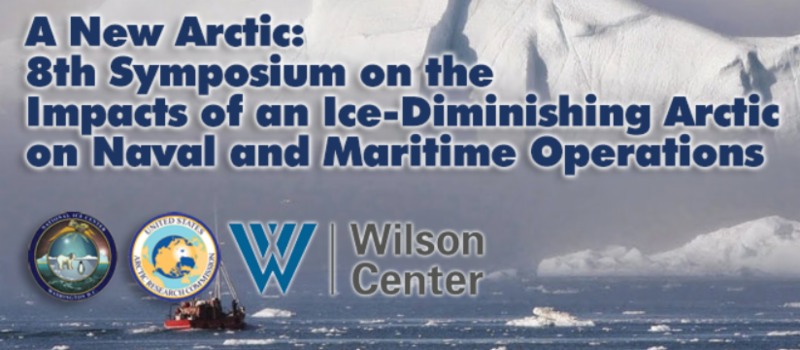
Mark your calendars to attend IDA-8, which some have called one of the best Arctic gatherings around. Historically, this biennial symposium was co-hosted by U.S. National/Naval Ice Center (NIC) and the US Arctic Research Commission (USARC). In 2019, these partners will join forces with the Wilson Center's Polar Institute, and the Patuxent Defense Forum (run by the Patuxent Partnership) as co-hosts. The now 2-day symposium will be held in the Ronald Reagan Building Amphitheater, in Washington, DC. The event will focus on a broad cross-section of naval and maritime operations and issues in an ice-diminishing Arctic. The symposium brings together nationally and internationally recognized experts on Arctic governance, geopolitics, marine operations, infrastructure, science, and environmental observations, from the local, regional, and pan-Arctic scale. Information on prior symposia, including lists of speakers, video clips, and copies of presentations, is available here. Attendance is free, and registration will begin in Spring 2019. The event will be webcast live, and video recorded.
|
|

  
4350 N. Fairfax Drive, Suite 510
Arlington, VA 22203, USA
External links in this publication, and on the USARC's World Wide Web site ( www.arctic.gov) do not constitute endorsement by the US Arctic Research Commission of external Web sites or the information, products or services contained therein. For other than authorized activities, the USARC does not exercise any editorial control over the information you may find at these locations. These links are provided consistent with the stated purpose of this newsletter and the USARC Web site.
|
|
|
|
|
|
|
|
|